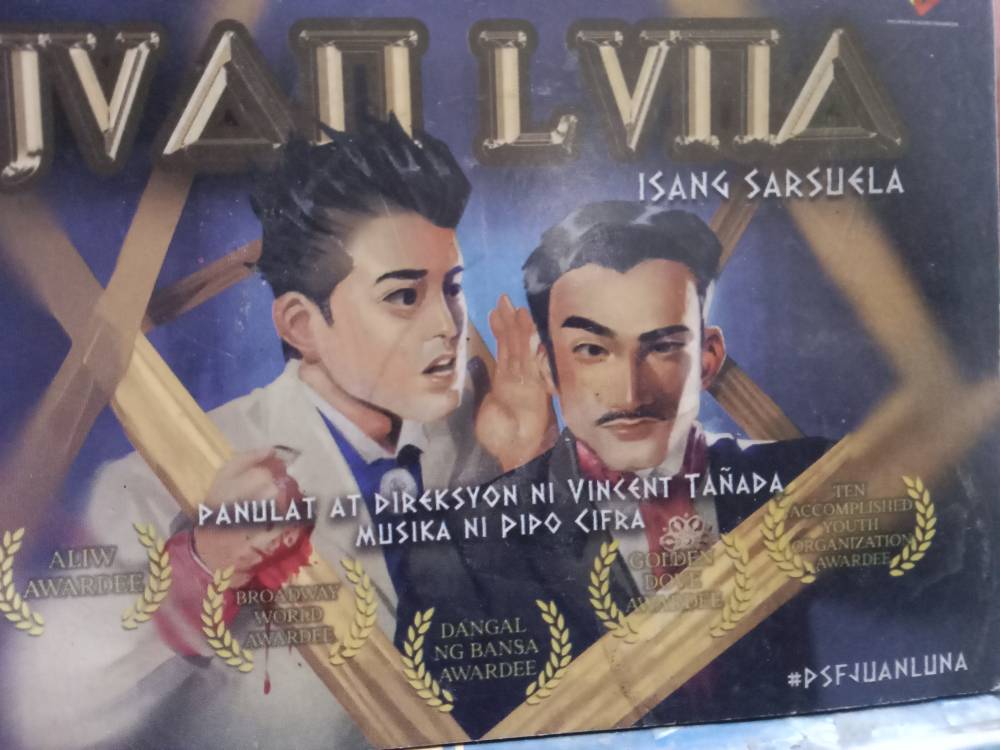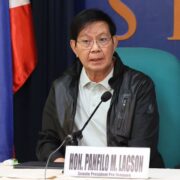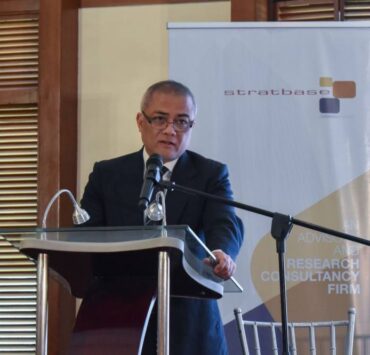Onstage: Bonifacio vs Aguinaldo, Juan Luna in a rage

One of the most divisive and acrimonious conflicts in Philippine history is the struggle to the death, literally, between Andres Bonifacio and Emilio Aguinaldo.
In his translated “Memoirs of the Revolution” (Mga Gunita ng Himagsikan, 1967), Aguinaldo relates that Generals Pio del Pilar and Mariano Noriel told him, “General, if you allow Andres Bonifacio to live, the cause of the revolution will be in danger. We cannot afford to be divided, especially in these critical moments.”
‘Bonifacio ang Supremo’
And so Aguinaldo ordered the execution of the Supremo and his surviving brother Procopio.
The issue has long divided historians and history buffs. There are Bonifacio partisans and Aguinaldo partisans.
Count among the former Vincent “Vince” Tañada, artistic director of the Philstagers Theater Foundation (formerly Philippine Stagers Foundation), which is celebrating its 25th silver anniversary. The productions are almost always a musical play, with the music of Pipo Cifra, a product of the University of Santo Tomas (UST) Conservatory of Music.
Tañada wrote and produced “Bonifacio ang Supremo” in 2013, and is set to revive it in a big way. Rehearsals are ongoing and it will be restaged all over the country on August 3 to March 2026 in various venues.
“We will show how Bonifacio was killed and the chief perpetrator was Aguinaldo,” said Tañada. “The people need to know what really happened.”
Bonifacio and Aguinaldo partisans, join the fray.

Another controversy
With the play “Juan Luna” (2016), about the famed visual artist who killed his wife Paz in a fit of jealousy in Paris, Tañada enters into more controversy.
“‘Juan Luna’ is a love story. There are a lot of misconceptions about Juan Luna. The most important thing that we presented in the play is that he had a mental disorder, which affected how he regarded his wife and stepmother. But despite his mental disorder, he loved his country. We can see in his works like ‘Spoliarium’ and ‘Parisian Life’ that he showed our struggles during the time of the Spaniards,” Tañada said.
With the help of sponsors, “Juan Luna” went on a nationwide tour last year that lasted until mid-2025 and chalked up a staggering total of 623 performances.
There’s also a play about Rizal in Dapitan titled “Joe” (2012) because, according to Tañada, Josephine Bracken could not pronounce ‘Jose’ and so she called him Joe. History relates that Josephine came to Dapitan with her stepfather, George Taufer, whose eyesight was fading, so Rizal could examine him. “Magkalaban sila ni Josephine” (she and her stepfather were not on friendly terms), quipped Tañada. The rest is history, as they say.
History for students
And with “Ako si Ninoy” (2009), Philstagers arrives at contemporary history. President Cory Aquino herself commissioned Tañada to do the play. The point of the work is that anybody can be a hero.
“You do not have to die for your country to be a hero. Even an ordinary person can be a hero,” Tañada said.
“Cory ng Edsa” (2011) is a sequel to “Ako si Ninoy” and was written after the death of the well-loved President in 2009.
Another Tañada musical play, “Katips,” short for Katipuneros, exposed the abuses under martial law. It was later made into a movie, won trophies at the Famas Awards, was shown in Cannes in 2023 and 17 other countries, became a “blockbuster” in the Philippines, and generated earnings of P180 million. But first, it was presented as a play in 2016.
Discussing his advocacy in theater, Tañada said, “I always talk about heroes and villains in the country because we want to present history to students, especially now that history has been removed from the basic curriculum. So our only weapon is to present historical plays that reflect our traditions, culture, and our national identity. That is our focus now. So we tell the story of Juan Luna, Andres Bonifacio, and José Rizal in song and dance to young people, to educate and entertain them.”

















